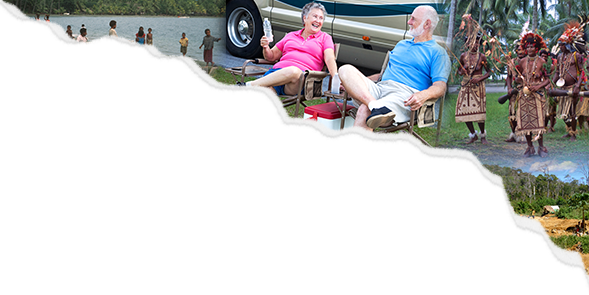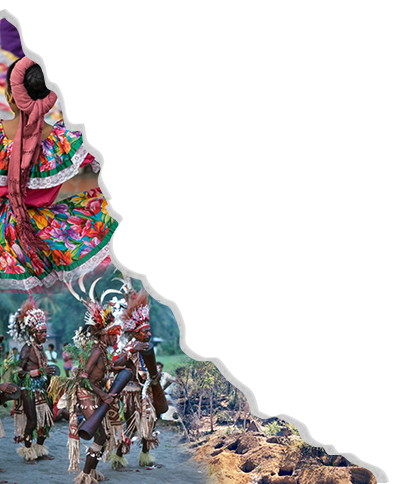
Despite a stubborn polar vortex that just doesn’t want to go away, we’re focused on spring and the renewal it promises. So it seems an auspicious time to formally launch our new series designed for undergraduate teaching. Anthropological Insights will feature very brief books (80 to 100 pages or 35,000-50,000 words) that introduce students to contemporary anthropological research.
Even though it’s fashionable these days to separate out research from teaching and to split academics (and their jobs) into different streams, we’re kind of old-fashioned in believing that scholarship and teaching can work hand in hand (and who knows, maybe we’re even on the cusp of a retro trend if this video contest is any indication). Take textbooks for example. These are compulsively conservative undertakings that usually deliver a synthetic treatment of agreed upon scholarship. They tend to steer away from controversy and towards consensus. While lively debates rage in journals, students are often given warmed-over treatments of material that may be twenty years out of date. There are exceptions to this, of course, including many of the textbooks that I have edited! But to be fair, it’s a lot to ask a textbook author to do justice to every sub-field (not to mention the not-yet-defined, up-and-coming sub-fields). This lag, between the production of new scholarship and its translation into textbook form, creates an important gap that needs to be filled, and not by journal articles or edited collections that are written for peers, but by an in-between form that allows for exciting new research to be delivered in a timely and teachable format.
Imagine that you are an instructor who wants to integrate into your course some of the issues that excite you but you simply can’t find the right material to assign to your students. Those journal articles you love aren’t really designed for undergraduates. They may be free, but they aren’t likely to be read, let alone understood. You want something that is brief and contained but provides enough disciplinary background before launching into what is new and exciting. You want more than the three paragraphs mentioned in the more comprehensive textbook, but you only want it for part of your course, not your entire course. You want something that is easy to supplement with other readings but affordable for students. Enter the Anthropological Insights series. Whether it’s new kinship studies, animal/human relations, mental illness, or a particular geographic region that is underrepresented in existing texts, we believe there’s a huge opportunity here to bring scholarship and teaching back into connection with one another.
And who better to rise to this challenge than a not-for-profit university press? For all the talk of broken publishing models and the death of the monograph, you continue to express support for the work we do, and most of you seem to want us to survive into the twenty-first century. We hope this series will help breathe a little more life into our endeavours by bringing together teaching and scholarship in one series. At the very least it’ll make my job more interesting!
We welcome queries, proposals, and suggestions. Scroll down for more information on the series and for the proposal guidelines.
Anne Brackenbury, Anthropology Editor
brackenbury@utphighereducation.com
SERIES FORMAT
The series will include books that are competitively priced and that can accompany and complement more comprehensive textbooks and readers, or work alongside ethnographies.
Each book in the series will cover a topic that is either newly emerging or enduring but requires a revisit in light of current scholarship. Designed to be manageable in scope (think mental illness, not medical anthropology) but broad enough to connect to key sub-fields and concepts in anthropology, these books will very quickly establish foundational information before focusing more intently on contemporary research.
They can also stand on their own as handy reference works or serve as modules for classroom use. While we encourage authors to think creatively about how to translate these ideas for a broader audience, each book should ideally provide an accessible overview, a summary of current directions of research, and a guide to key publications and videos, as well as suggested topics for student research and papers.
POTENTIAL TOPICS
We invite your suggestions for topics. Possibilities include:
- Addiction
- Animal / Human Relations
- Biotechnology
- Contemporary Witchcraft
- Death
- Eco-tourism / Tourism
- HIV / AIDS
- Indigeneity
- Language Risk / Revitalization
- Museum Anthropology
- Nature
- Photography
- Policing
- Posthumanism
- Queer Culture
- Social Media
We are also interested in regional guides to the anthropology of:
- China, Japan, Micronesia, Russia, etc.
PROPOSAL FORMAT
Proposals should be between 5 and 15 pages long and include the following:
1. Description of and rationale for the proposed whole, including an annotated table of contents
- What is it about this topic that would lend itself well to the series format and approach?
2. Discussion of the ways in which the project speaks to current teaching practices and scholarly interests.
- Where is the subject matter located in terms of current scholarly interests? Is it cutting edge? Is it a popular subject? Is it a topic that requires a revisit in light of current research? Is it a topic that has not yet been translated for a student audience? etc.
- What are the challenges in teaching the content of related courses? How does the proposed text speak to these challenges?
- What distinctive approaches to coverage will your project offer?
- Are there elements that others in the field may expect to find but which you will not include? Why not?
3. Discussion of the project’s potential market
- What is the primary course market for the project?
- What are the secondary markets for the project?
- How do you anticipate the proposed book being used in the classroom? Would it be a core text or a supplementary text and how would instructors likely use it as a teaching resource?
4. If you intend to include non-textual materials or primary documents (e.g. illustrations, charts, tables, etc.) please explain the role these materials will play in the text and how you will treat them in the text as well as any potential copyright issues.
5. Discussion of author’s interest and credentials (teaching and/or scholarly) for writing the proposed book.
6. Overview of competing or complementary books, explaining how the proposed project differentiates itself.
7. Proposed date of completion.
8. Tentative title (note that the series title, Anthropological Insights, may form the subtitle).
9. Estimated total length of the manuscript (approximate word count, if possible).
10. Proposer’s CV.



